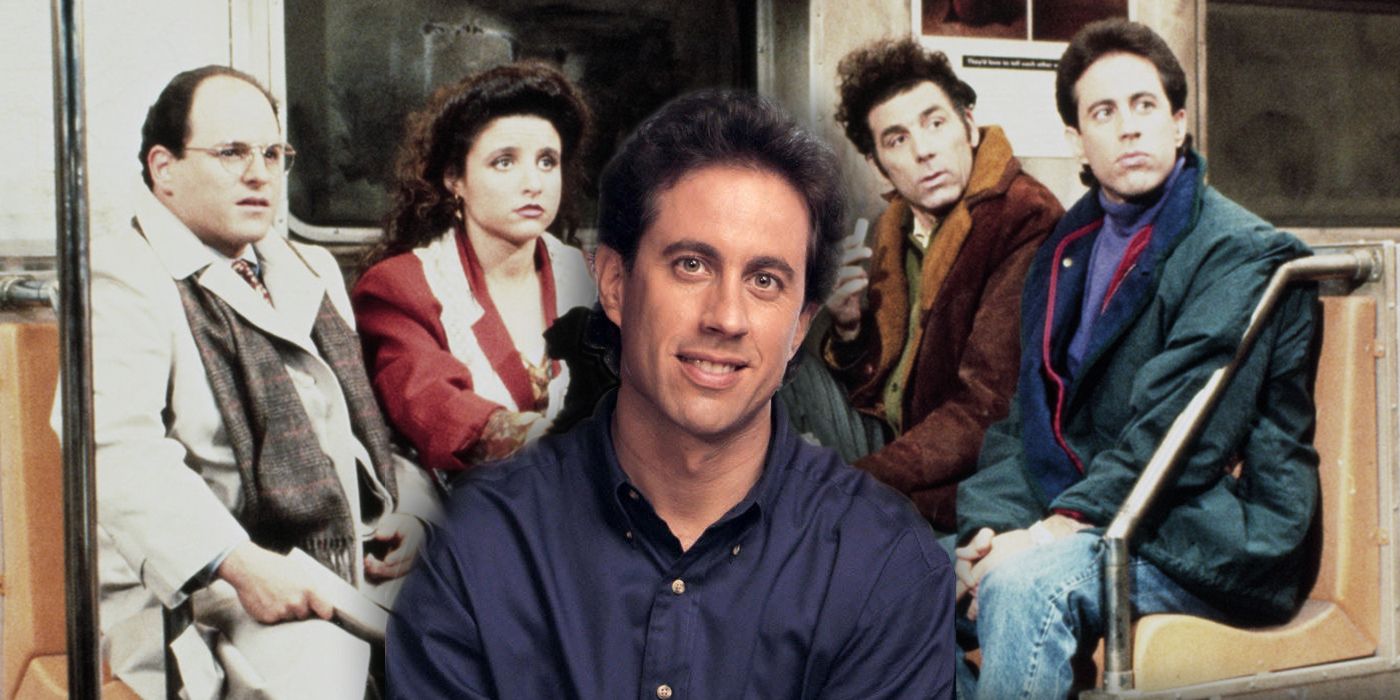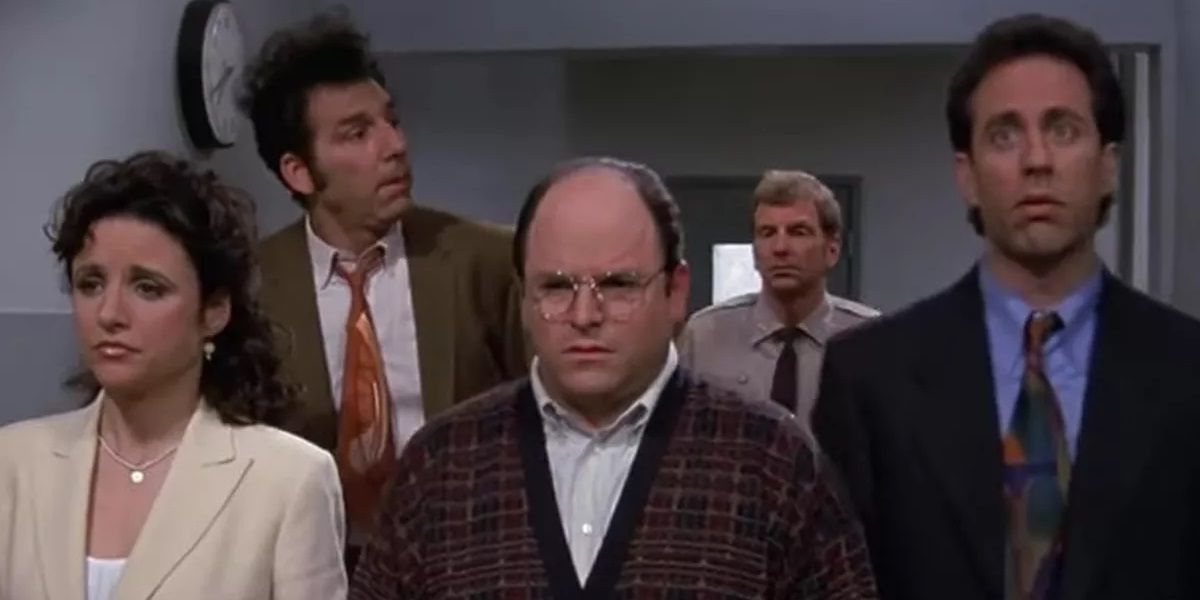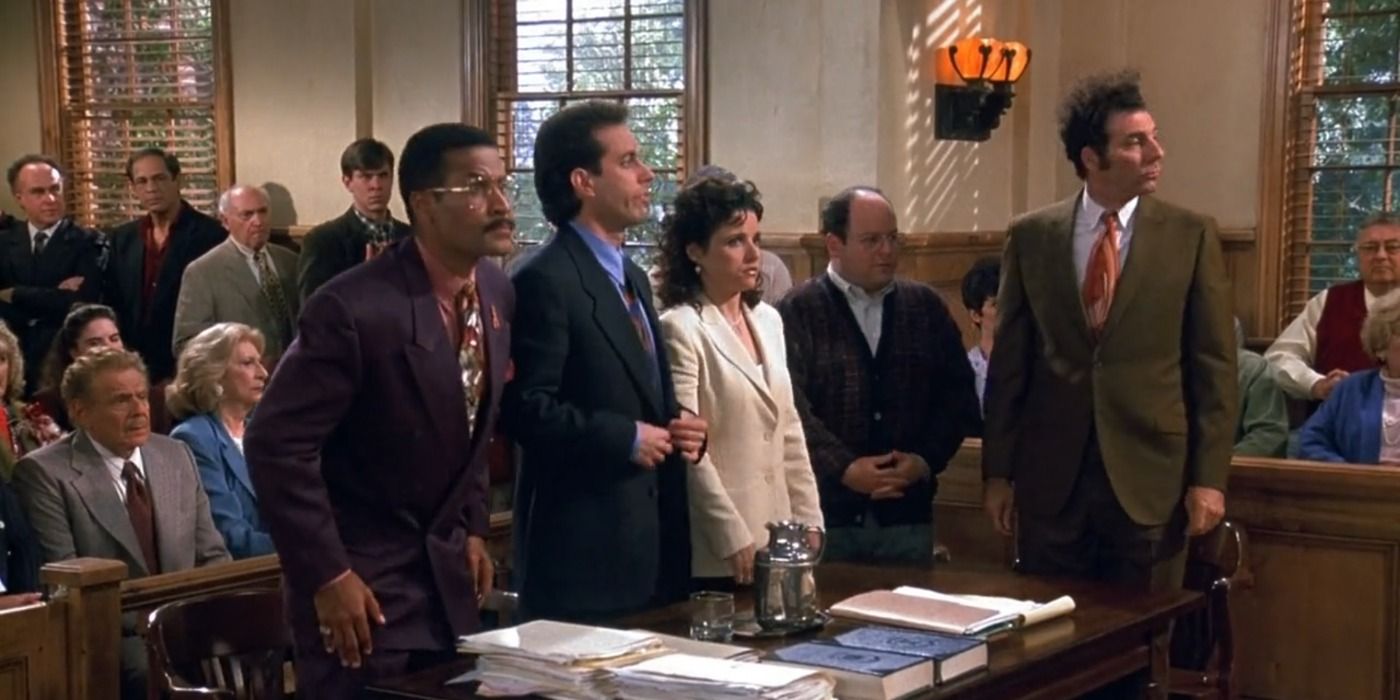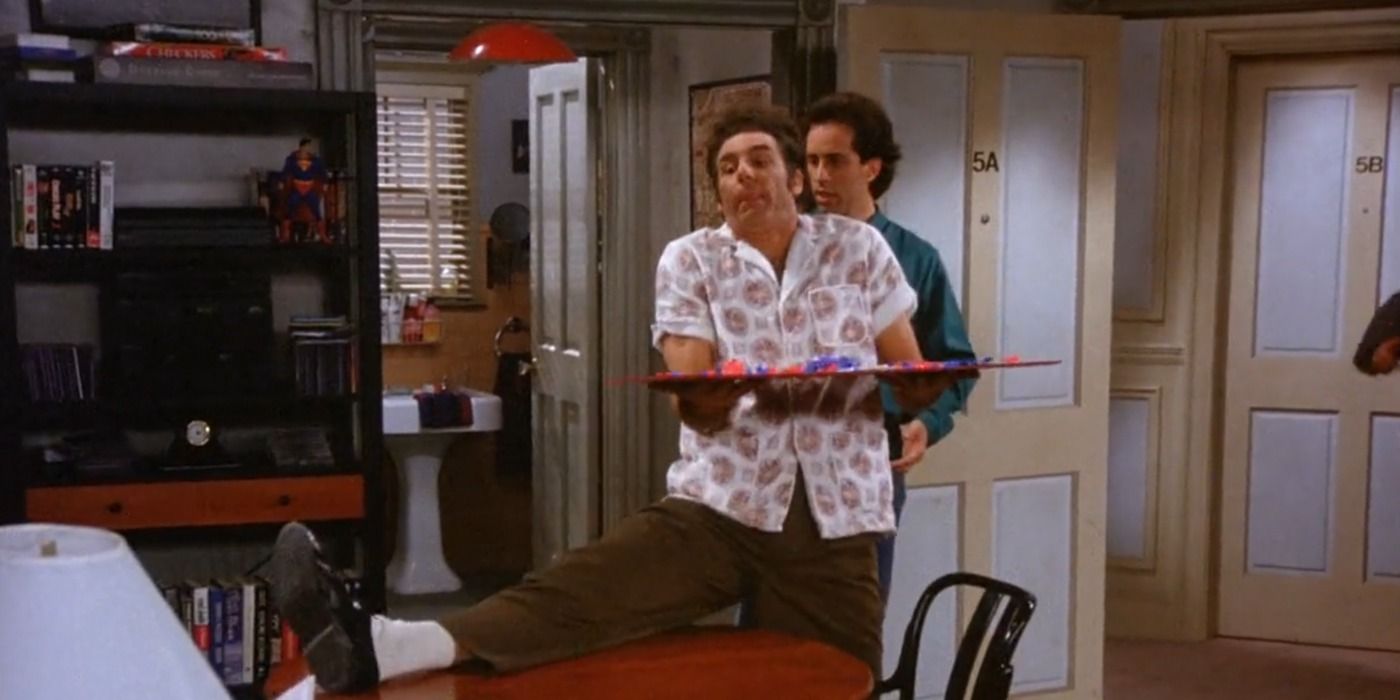In 1998, Seinfeld ended with its season 9 finale, bringing an end to a TV sitcom that dominated popular culture throughout the '90s. Love it or hate it, Seinfeld was undeniably influential, and it remains a popular show in syndication twenty years later. Even in the final seasons, Seinfeld dominated the ratings, as people turned up faithfully every week to see the latest antics of Jerry Seinfeld, George Costanza, Elaine Benes, and Cosmo Kramer. So why did the series end?
Despite being such a cultural juggernaut today, Seinfeld initially struggled to get made. The pilot was poorly reviewed, and series creators Larry David and Jerry Seinfeld weren't initially interested in continuing Seinfeld past the first four episodes they produced. However, the two comedians were eventually convinced otherwise, and Seinfeld went on to make TV history. The show won numerous awards during its run and remains a common fixture in "Best TV Series of All Time" rankings.
At the same time, however, despite its status as a beloved sitcom, the Seinfeld series finale is hated. This is largely because it lacked the typical antics fans had come to expect from the core cast, but also because it summarized all the horrible things the characters had done over the years. Seinfeld still managed to go out on top, though, with its final season being at the top of the Nielsen chart. Seinfeld wasn't canceled — it was far too big of a hit for that — but by 1998, the show had run its course.
Jerry Seinfeld Didn’t Want To Keep Making The Show
Jerry Seinfeld was the driving force behind his sitcom — which should be no surprise, given that he was its star, and it bore his name. Larry David was Seinfeld's co-creator, and acted as showrunner for most of the sitcom's history. However, he opted to step away from the project at the end of season 7, leaving the standup comedian Jerry Seinfeld to fill that role for seasons 8 and 9. By the end of the final season, Seinfeld simply didn't want to do the show anymore — the time felt right to end the sitcom while it was still on top. Today, Seinfeld has no regrets about ending the series when he did: as he told The New York Times in 2018, "It was the perfect moment, and the proof that it was the right moment is the number of questions you’re still asking me about it."
In the New York Times interview, Seinfeld goes on to discuss the merits of his sitcom and the delicate balance of priorities required to make something truly great. Describing the "proportions" of comedy, he goes on to argue that understanding such nuances is "what makes it art or what makes it mediocre." This explains why continuing past season 9 was a no for Jerry Seinfeld even though he was offered an unprecedented $5 million per episode, for a total of over $100 million, to do another season. Seinfeld prioritized the quality of his work over financial gain, and ultimately, that's why Seinfeld ended after season 9.
The show's run, and its end, became hot topics again after Seinfeld's move to Netflix. Netflix paid a high cost to stream Seinfeld, with all nine seasons added to the platform for the first time ever, after years spent on Hulu. While some controversy erupted among diehard fans concerning the altered aspect ratio of the episodes — Seinfeld was shot for TV's classic 4:3 dimensions, but the HD remasters are cropped to 16:9 widescreen — they were cropped on Hulu as well, and the issue seems likely to simply blow over eventually, unlike the eternal hatred toward the series finale.
Seinfeld Won’t Be Coming Back
Netflix purchase aside, Seinfeld won't be making a comeback with new episodes any time soon – or likely ever. Although reboots are extremely popular in the current nostalgia-hungry cultural climate, Jerry Seinfeld wouldn't be interested in undertaking such a project with his iconic sitcom. As he put it in an ET interview, "It would seem sad to me. It would seem like we couldn't think of a new idea." This response makes perfect sense coming from Seinfeld. If a $100 million offer back in the late 90s couldn't convince him to continue when Seinfeld still had its original momentum, any pitch for a revival series would likely have a hard time doing so now. Seinfeld is also right to point out that rebooting an old series can indicate a lack of new ideas, a common criticism of other recently revived sitcoms. Ultimately, it's for the best that Seinfeld ended when it did, and on a relatively high note.
Why Seinfeld Is Still So Popular Today
Between memes and streams, Seinfeld is re-entering the public consciousness like never before – but why is the television series still popular after ending almost 25 years ago? The aforementioned streaming services' role in presenting the show with an upswing in popularity is key. The advent of such technology is able to bring older shows to new audiences who may not have experienced the TV show during its initial run, usually with lasting results. While the setting and some jokes may come off as outdated, Seinfeld inspired It's Always Sunny and many other hugely popular shows, and the characters from It's Always Sunny in Philadelphia and Difficult People take direct instruction from the narcissistic Seinfeld bunch. The self-centered and relatable Seinfeld humor still manages to hold up for today's audiences, and the series is almost as well-liked now as it was back in its heyday. So, while it's good that Seinfeld ended when it did (and because it never labored beyond its means), the show is still at the forefront of people's minds thanks to streaming services.




